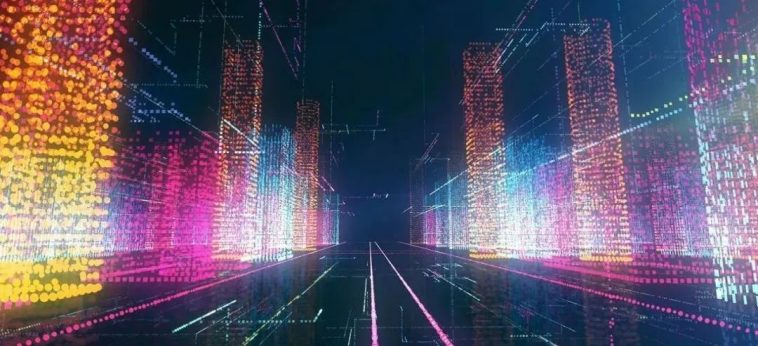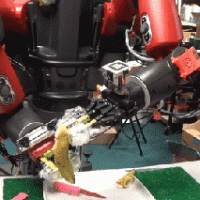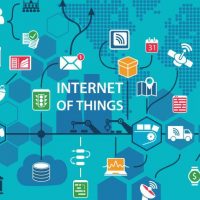Just like “there are a thousand Hamlets in the eyes of a thousand people”, so far there is no standard definition of the metaverse.
In fact, most people look at the metaverse as “seeing flowers in the fog”, they can’t say they don’t understand it completely, but they also don’t fully understand it.
How should we view the metaverse? The metaverse is similar to the “Tao” in traditional Chinese culture, which outlines a new form of society for us, which is neither technology nor industry.
It is characterized by the “integration of virtual and real”, that is, the full integration of the virtual world, the digital world, and the real world.
In fact, the Metaverse is not a simple technological change. It is the so-called “Tao has skills”, AI, big data, 5G, blockchain, digital twin, cloud computing, and other technologies that support the Metaverse blueprint, as well as VR, AR, and other hardware devices, it belongs to the category of “art”, only the combination of Tao and art can make the “contour” of the universe gradually clear.
01. The digital survival of human beings in the future
The year 2022 can be called the “Golden Age” of the Metaverse.
According to the Zion MarketResearch survey, the assessed virtual reality and metaverse market assets in 2018 were approximately US$26.7 billion, and are expected to reach US$814.7 billion by 2025, with an average annual growth rate of 63.01% between 2019 and 2025.
The Oxford Dictionary defines the metaverse as “a virtual reality space in which users interact with computer-generated environments and other people”.
However, this definition is still very narrow. If the world we live in is called the first world, the metaverse will be a second world parallel to the real world.
In this world, people can do the same things as in the real world, and even do things that they want to do in life but do not do, or cannot do.
The metaverse that you think is cool is actually not a concept that came out of nowhere, but a continuous innovation formed by the industry after long-term development, and it is a grand blueprint for the future development of the information technology industry and the electronic semiconductor industry.
Looking back at the past 20 years, information technology and the Internet have made a lot of online and digitized relationships between people in society, and have profoundly changed human life and social economy.
Information technology will continue to develop, and its form in society will further evolve. As tech giants look for a future digital lifestyle, the Metaverse has been discovered as an attractive vision, and then attracted market attention.
As the sum of the next-generation Internet and broader digitalization, Metaverse is characterized by 3D, UGC, and longer online time. It includes the comprehensive application of XR, AI, 5G and other technologies in the C-end and B-end, and ultimately points to the future digital survival of mankind. .
The Metaverse is extremely rich in connotations, including fields and technologies such as the Internet, industrial digitization, intelligence, Internet of Things, high computing power equipment, and high-speed wireless communications.
On March 10, 2021, the IPO of Roblox, a sandbox game platform company that claims to be the “first share of the metaverse”, on the New York Stock Exchange opened the prelude to the battle for the metaverse industry.
On May 18, 2021, the South Korean government announced the establishment of the “Metaverse Alliance” and plans to invest 202.4 billion won in the digital content industry.
On October 28, 2021, Facebook CEO Mark Zuckerberg announced that the company name would be changed from “Facebook” to “Meta”. Major social and game platforms have also announced their investment in special funds for the Metaverse.
In China, the metaverse industry has gradually moved from the sidelines to the center of the stage.
On December 30, 2021, the “14th Five-Year Plan for the Development of Shanghai Electronic Information Industry” issued by the Shanghai Municipal Commission of Economy and Information Technology included Metaverse for the first time, and Beijing, Zhejiang, Wuhan and other places also deployed Metaverse in advance. Space industry development.
It is believed that in the future, under the unified layout of various countries, the industry may usher in the domestic “first wave” ahead of schedule.
02. Metaverse exploration of global technology giants
In general, large tech companies globally participating in the metaverse can be divided into three categories.
The first category is represented by facebook and Microsoft.
Such enterprises do not occupy a key entry position in the field of mobile Internet, so they are constrained everywhere in the process of business development.
In order to reverse the passive situation, such enterprises very much hope to use the Metaverse as an opportunity to lead the next round of development of the Internet and seize the corresponding key entrances in advance.
Since the motives to take advantage of the metaverse are very clear and strong, such companies have a very positive attitude when entering the metaverse.
Facebook’s layout in the metaverse is currently the most comprehensive, including Creator content creation community, VR/AR Oculus Quest, digital currency diem and business, Workplace virtual office space, and Oculus and other VR hardware devices.
CreatorApp aims to allow content creators to build a community around content and provide one-stop creation services, including: creating, editing, and publishing videos; sharing information on the platform through Creator, you can send content to Twitter, Instagram and other platforms; help Creators perform statistical analysis and have the ability to publish more popular videos.
In September 2020, Oculus launched the Oculus Quest 2. With its extremely high cost performance, the VR glasses have significantly increased Facebook’s share in the VR equipment market, creating a good start for Facebook’s goal of grabbing the entrance.
The second category is represented by Apple and Google.
Such enterprises are the winners of the mobile Internet era. By controlling hardware, operating systems and application stores, they control the entrance to the era of mobile Internet, and other companies have to look up to them and abide by the rules they set.
Such vested interests are usually ambiguous when confronted with new things like the Metaverse that may shake their existing status.
On the one hand, they do not hope that the metaverse can achieve real development, especially do not want to see their competitors lead these developments; Not some defensive layout of the metaverse.
In contrast, Apple’s approach to the Metaverse appears much more restrained. Apple CEO Cook said in an interview: “I will stay away from buzzwords. We just call it augmented reality.”
To a large extent, Apple’s cautious approach is determined by its position in the industry.
If the Metaverse really comes, the terminals now dominated by mobile phones will be subverted. For Apple, its hard-earned market advantage has completely disappeared.
Moreover, the concept of openness and decentralization promoted by the Metaverse can be said to be incompatible with the closed ecology that Apple has always adhered to.
For these reasons, Apple hasn’t shown much enthusiasm for the Metaverse for a long time.
It should be pointed out that although Apple does not emphasize the metaverse in public opinion, in fact, in private, Apple has not a lot of layout of the metaverse. However, as Cook said, these layouts are not in the name of the metaverse, but in the name of AR.
The third category is represented by Amazon and Nvidia.
The business itself of such enterprises does not depend much on the network entrance, so they are not enthusiastic about seizing the entrance through the layout of the metaverse.
But at the same time, some of their own capabilities, such as cloud computing and artificial intelligence, are necessary for the development of the metaverse. Therefore, they are also happy to see the metaverse.
However, in terms of the layout of the metaverse, they are not as radical as Facebook and Microsoft, attacking from all directions, but more based on their existing advantages, and based on this, they extend their radiation to the outside world.
Omniverse is an open cloud platform developed by NVIDIA for virtual collaboration and real-time realistic simulation. Through the cloud, creators, designers, engineers and artists can work in real time locally or around the world beyond physical boundaries, and can communicate with each other in real time. It provides great convenience to see the progress and work effect.
Omniverse is based on Pixar’s USD (Universal Scene Description Technology), with a highly realistic physics simulation engine and high-performance rendering capabilities.
USD is a file format for transferring scene description information, which is mainly used to synthesize scenes and parse the values in the scene in real time, and the API of USD supports complex attributes, layering, lazy loading and various other functions.
Based on USD, NVIDIA wants to create a 3D asset that integrates various 3D software platforms, building an open authoring and sharing platform.
Compared with giants such as Microsoft and Facebook, Amazon’s attitude towards the Metaverse is tepid.
On the one hand, Amazon’s business does not rely heavily on the underlying entry – no matter how the underlying entry changes, the demand for buying goods will always remain the same. Therefore, Amazon does not have the anxiety of competing for the entrance to the bottom like Facebook.
But on the other hand, it is obviously unwilling to let go of this outlet, so it has been trying to find business opportunities in this outlet.
From the perspective of the specific implementation path, Amazon is more focused on exploring the business opportunities of the Metaverse based on its existing business and resources.
03. The potential risks behind “false fire” deserve attention
At present, the Metaverse is still in the stage of “Blind Man Touching the Elephant” and “Puzzle”.
With the advancement of cutting-edge technology and the improvement of human cognition, there may be a large number of metaverse application scenarios in the future.
But behind the rapid popularity of the Metaverse, potential problems are gradually exposed, and we need to pay special attention to it, which also determines the establishment of the Metaverse worldview in the future.
First, there is the industry monopoly in the metaverse industry.
For the leading companies that already have abundant technical resources and capital, they all hope to enter the market in the early stage of the Metaverse, and try to control the right to speak and formulate the rules of the Metaverse industry, and even have the “coinage right” in the “Digital Domain” ” and the “right to collect taxes”, as well as the authority to implant ideological orientations and values in the “Digital Realm”.
Because these giant companies have more comprehensive and accurate data information.
If it is allowed to develop disorderly, it may bring challenges to the security of the country, society and citizens, and it will also have a negative impact on the healthy development of the Metaverse ecological industry.
Second, personal privacy and data security risks.
With the continuous evolution of technologies required for the metaverse ecology such as artificial intelligence, Internet of Things, 5G, big data, cloud computing, and blockchain, the data and information generated by people in work and life will be more abundant. Personal classification “labels” and “portraits” are also becoming more and more accurate.
If there is no perfect mechanism to protect, personal privacy and data security will be at risk.
Third, the risk of over-reliance on data.
With the development of smart cities, social governance will increasingly rely on massive data, which may neglect humanistic care for urban residents.
At the same time, the over-reliance on data may go to the other extreme, and once the data is attacked and destroyed, it may cause greater losses.
For example, in the United States, there have been actual cases in which oil pipeline operators were forced to shut down oil pipelines after being attacked by “hackers” for “data kidnapping”.
Fourth, the security risks of digital assets.
With the gradual implementation of metaverse application scenarios, many new types of digital assets will be derived.
With the gradual circulation of legal digital currency, there are also various transaction demands for the digital assets of digital virtual people in the metaverse.
Since the economic system of the Metaverse is based on the blockchain as the underlying technology, these digital assets will make extensive use of smart contracts to complete data exchange and transaction behaviors in virtual scenes.
Smart contracts will replace people to operate digital assets with actual economic value. Once attacked by “hackers”, it may cause property damage.
Fifth, the security of cross-border data flow.
In the future, the Metaverse will be faced with an international virtual space environment co-constructed by many countries, just like the current Internet. Transnational cooperation and exchanges between technology companies are essential, but in this kind of cooperation and exchange, the Disorderly cross-border movement could threaten national security.
How to ensure the security of data source countries while opening up data interoperability, it is still necessary to reach a more complete international data cooperation agreement.
The Metaverse is the next-generation Internet in the next 20 years, and the future digital existence of mankind.
The connotation of the Metaverse is not limited to the Internet. It is a series of high-tech “connecting dots” that may bring new species beyond people’s imagination.
Looking back at the past 20 years, the Internet has profoundly changed the daily life and economic structure of human beings; looking forward to the next 20 years, the metaverse will have a more profound impact on human society and reshape the digital economic system.
The Metaverse connects the real world and the virtual world, and is the carrier of human digital survival and migration, improving experience and efficiency, extending human creativity and more possibilities.




GIPHY App Key not set. Please check settings